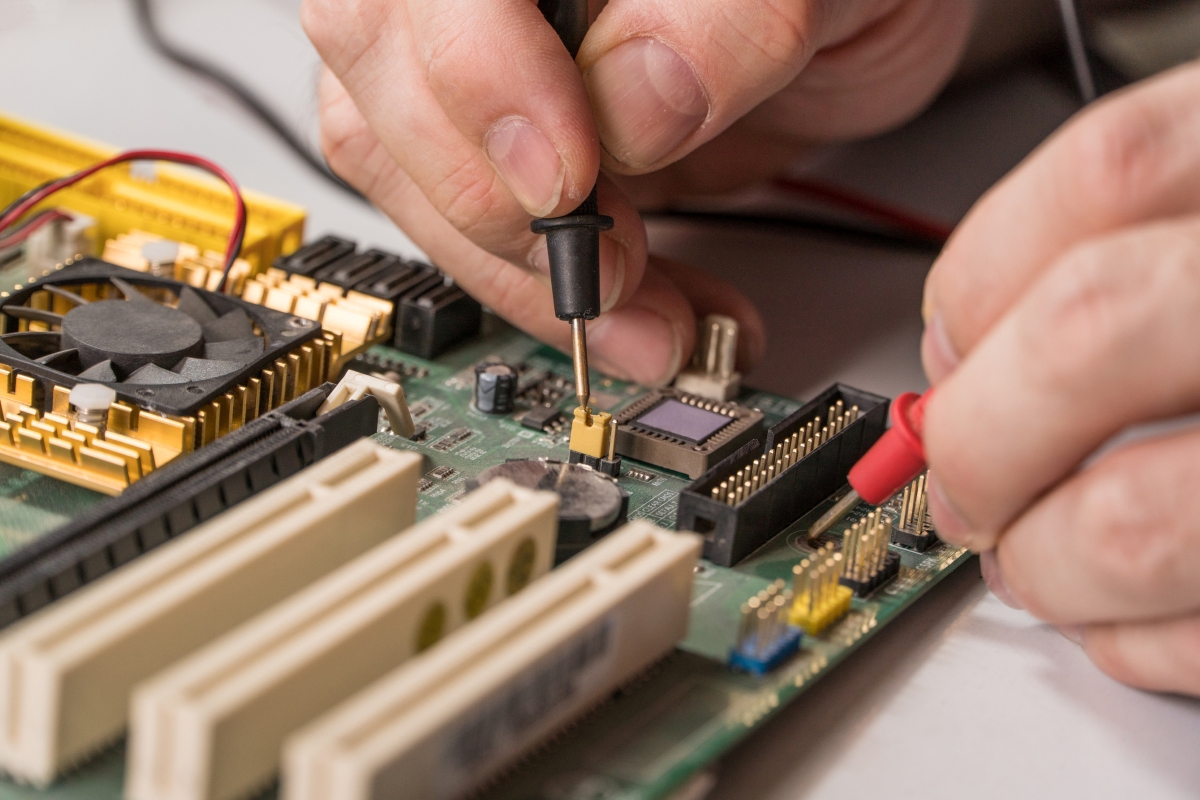The investment for the seven approved projects is ₹5,532 crores, with expected production of ₹44,406 crore and 5,195 new jobs.
Published Oct 28, 2025 | 12:32 AM ⚊ Updated Oct 28, 2025 | 12:32 AM

Electronics Components Manufacturing Scheme. (iStock/ representational image)
Synopsis: The scheme aims to build a strong and self-sustaining ecosystem for electronics component manufacturing in the country. Its focus is on attracting both domestic and global investment across the value chain, promoting higher domestic value addition, and positioning India as a key player in global electronics trade.
Tamil Nadu has bagged five out of seven approved projects under the Union government’s Electronics Component Manufacturing Scheme.
The investment for the seven approved projects is ₹5,532 crores, with expected production of ₹44,406 crore and 5,195 new jobs.
Among the seven, while five are from Tamil Nadu, the two are one each in Andhra Pradesh and Madhya Pradesh.
In Tamil Nadu, Kaynes Circuits India Private Limited has planned four projects, including a Multi-Layer Printed Circuit Board (PCB) unit with a cumulative investment of ₹104 crore and production worth ₹4,300 crore, creating employment for 220 persons.
The company also proposes a Camera Module Sub-Assembly project with an investment of ₹325 crore and production of ₹12,630 crore, generating 480 jobs.
Additionally, Kaynes will establish an HDI PCB facility with an investment of ₹1,684 crore and production worth ₹4,510 crore, employing 1,480 people, along with a Laminate manufacturing unit involving an investment of ₹1,167 crore and production of ₹6,875 crore, creating 300 jobs.
The fifth one is Ascent Circuits Pvt Ltd, which is setting up a Multi-Layer Printed Circuit Board (PCB) facility, involving an investment of ₹991 crore, production worth ₹7,847 crore, and the creation of 1,535 employment opportunities.
According to the press release, “The Electronics Component Manufacturing Scheme was notified on 8 April 2025 with a total outlay of ₹22,919 crore, equivalent to about USD 2.7 billion. It has a tenure of six years, with an optional one-year gestation period.”
“The scheme aims to build a strong and self-sustaining ecosystem for electronics component manufacturing in the country. Its focus is on attracting both domestic and global investment across the value chain, promoting higher domestic value addition, and positioning India as a key player in global electronics trade.”
“The ECMS seeks to integrate India’s electronic industry with global value chains by encouraging production of essential components, sub-assemblies, and raw materials within the country.”
Tamil Nadu Minister for Industries TRB Rajaa took to X, to announce the same.
Hailing the state’s achievement, he wrote: “In this round, Tamil Nadu leads with 77% of total investments approved. Eventhough the Union’s ECMS scheme had an initial investment target of Rs 59,350 crore, they have received proposals worth over Rs 1 lakh crore. Eventually, we in Tamil Nadu hope to garner about 30% of the investments under the scheme. We were the first state to formulate a matching grants scheme for components manufacturing and the results are here for everyone to see !”
Adding that, “numbers don’t lie,” the minister claimed, “Despite Tamil Nadu’s unmatched leadership in several sectors, there are anti-Tamil Nadu political groups with vested interests which try to malign the state and our people’s achievements !”
Tamil Nadu powers India yet again as we enter the era of electronics components manufacturing !
Tamil Nadu is the TOP state in the first round of the Electronics Component Manufacturing Scheme of the Union Government, with 5 out of the 7 approved projects so far.
In this… pic.twitter.com/SOa4dCgjoA
— Dr. T R B Rajaa (@TRBRajaa) October 27, 2025
